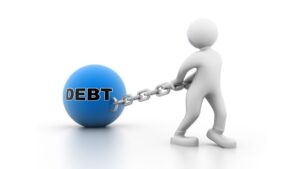The average age of a vehicle on American roads reached a new record of 12.2 years in 2021. Advances in quality and technology may be partly responsible for people hanging on to their vehicles longer than ever before. Shortages in new and used cars, combined with record high prices at the car lot, may also be partly to blame.
Computer chip shortages and supply chain disruption have caused new car prices to soar 26% from where they were pre-pandemic, leaving dealerships with low inventory on the lot and little reason to offer generous incentives to new car buyers.
Perhaps your current vehicle is older and you’re worried about future expensive repairs. Or, maybe record prices at the gas pump have you ready to make the switch to electric. Navigating today’s vehicle market takes a bit more thought and planning to make the right decision for your personal circumstances.
There are advantages and disadvantages to leasing vs. buying, and the variables to consider aren’t just financial.
Here are five questions to ask yourself before you hit the car lot.
1. Do you prefer a new car every few years?
If having the latest and greatest technology, newest safety features, or even that new car smell is important to you, leasing may be your best option. The typical lease lasts two to four years, giving you the opportunity to switch to a newer model at the end of your lease term. Many people like the short-term commitment of leases, the warranty and repair coverage, and the use of a vehicle in its highest stage of depreciation.
2. Do you drive a significant number of miles each year?
The typical lease allows for a limited number of miles for the car to be driven each year, usually in the neighborhood of 8,000 to 10,000. If you have a long commute or your ideal vacation involves long stretches of open road, strict lease mileage limits could lead to expensive per-mile overage and wear-and-tear fees. Purchasing the vehicle is the better option if you have any concerns about how much you might drive.
3. Are you trying to minimize your monthly payment?
A common reason for leasing a vehicle is a lower monthly payment than one would typically have if the same vehicle was financed, especially in the case of luxury cars. In our current hot vehicle climate, however, many automakers are no longer offering generous lease incentives. The monthly cost to lease versus finance is now more comparable, if not more expensive in some cases.
4. Are you a business owner?
The financials of leasing versus buying are potentially different if you need a vehicle for business use. You may be able to deduct certain leasing and operating costs, in addition to minimizing upfront purchase costs. Again, it’s important to be mindful of the amount of use a leased vehicle would receive in the course of your business activities and whether you risk exceeding annual mileage limits.
5. How important is flexibility and control to you?
Lease terms have strict parameters about what you can and cannot do with your “rented” vehicle. Making any modifications to the vehicle, using the car in a rideshare like Uber or Lyft, or even driving across the border to Mexico are strictly prohibited. Terminating a lease early can also come with high costs and penalties. Buying provides complete control over how long you own the vehicle, discretion on how it’s used and customized, and the value you receive when you ultimately sell or trade-in the car down the road.
Before heading out to the car dealership, it’s important to give some thought to how you plan on using your new vehicle, your current and future circumstances, and how much control you wish to have. The decision between leasing versus buying is not just one of finances.
If you need help making an important decision in your life, reach out to us at Uplevel. We’re here to help.




